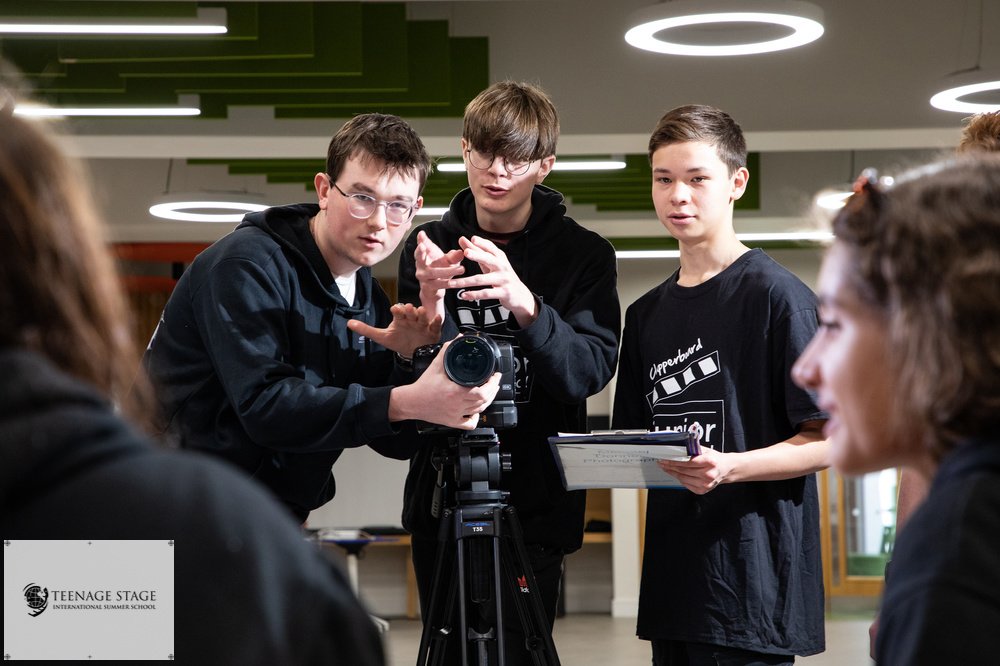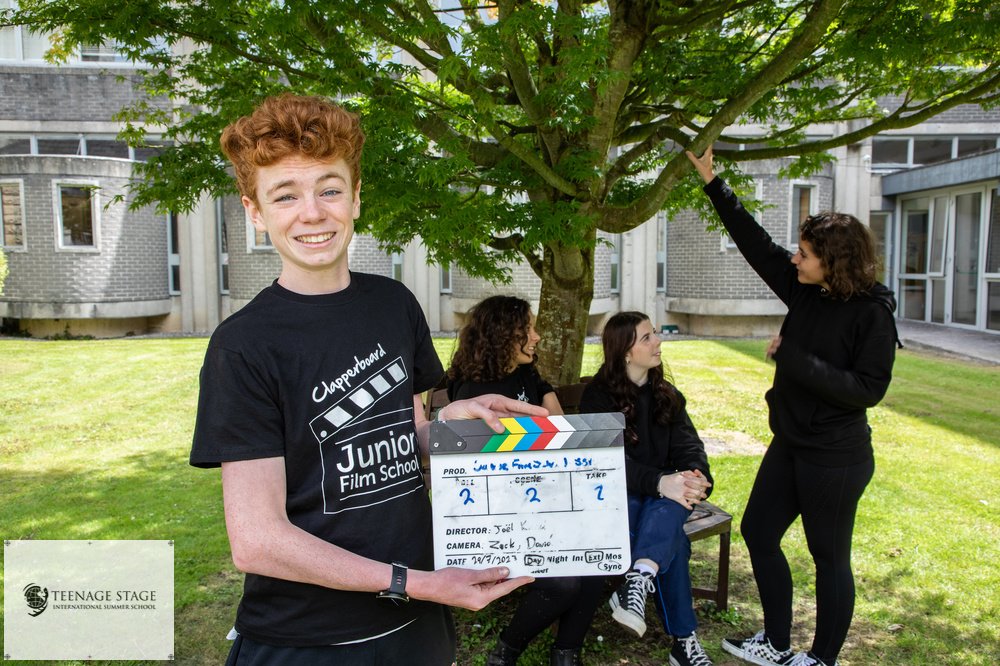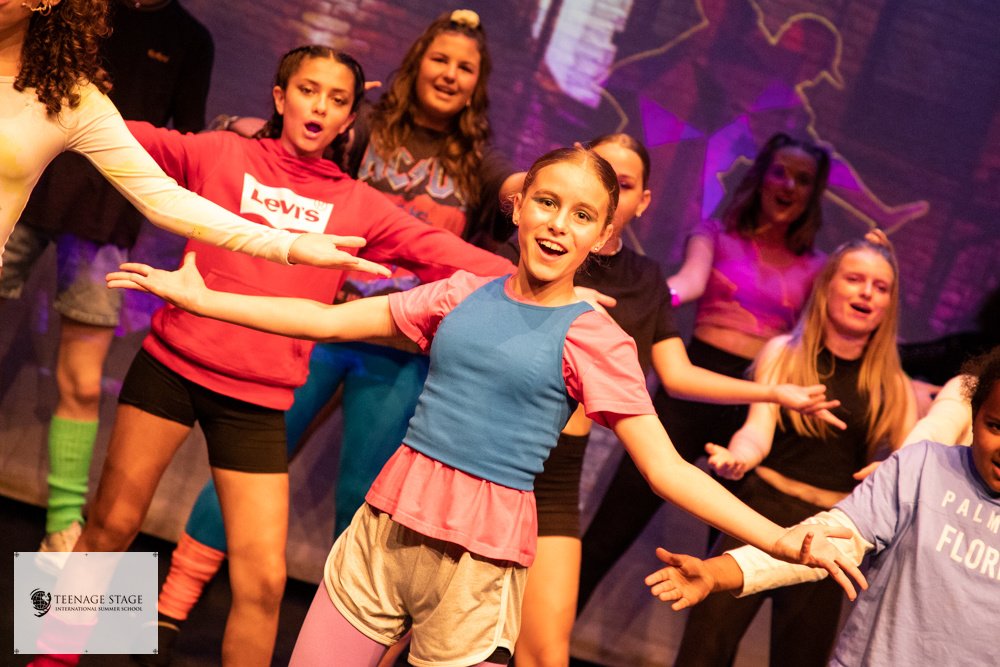
Questions & Answers
FREQUENTLY ASKED QUESTIONS
Have the tutors and chaperones all been Garda vetted or DRB checked?
Yes. All Teenage Stage International Summer School teachers and staff in the pastoral care team has been vetted and are aware of our child protection policies and guidelines. Our professionally qualified teaching staff are highly respected with many years experience in teaching children and teenagers. Day classes have a staff student ratio of 1 to 12 and evenings with chaperones and centre management, the ratio is 1 to 8. Many of our teachers have been employed by our sister company, StageSchool Ireland for over ten years and are highly experienced with residential courses and in all aspects of first aid and pastoral care. Our team are professional, caring and sensitive to the welfare and personal development of all students in our care from Ireland and the many overseas students who return each year,
What is the daily schedule the students will be following?
The day starts at 9.45am and finishes at 4.30pm to 5pm with a break for lunch between 1:00pm and 2:00pm Each day will be packed with classes covering all aspects of training in Acting and Musical Theatre or Film making and Acting Classes with daily rehearsals scheduled to bring together the finale performance on stage or livestream on screen at the end of the week. After dinner at 6pm, there are evening master classes, quizzes, talent show open sessions and leisure time leading up to 10pm Hot Chocolate sessions for a review of the day.
Students and parents should be aware our courses are 95% digital free! Mobile phone and tablet use is restricted on all courses to agreed social interaction times outside of rehearsal and class time to contact parents.
When does Teenage Stage 2024 sell out?
The dates are courses are fully booked varies from year to year, but generally most courses are 95% full by the Easter holiday as a general rule. Booking is on a first-come, first-served basis. When each camp is sold out, a waiting list will be available. Should a place become available, parents on the waiting list will be invited to book in the order in which they joined the list.
Creating amazing memories every summer!
Our 2 week Film Making Intensive now booking for 2023!
Will students need to bring their own food?
Teenage Stage provides a healthy daily breakfast, lunch and dinner with refreshments for all its students included in the school boarding fee. We ask that students eat well and drink plenty of water to keep hydrated through the day. As long as we are notified of any specific dietary requirements we will be able to cater accordingly. After dinner, the Tuck Shop is open for a limited time to sell some holiday treats each evening. Staggered dining and outdoor options are also being made with additional picnic and barbecue alternatives this summer on campus. Buffet service and other table arrangements are already in place successfully in our colleges.
Are the students supervised?
Teenage Stage students are supervised and chaperoned at all times.
Our designated teachers, chaperones and professional production team are based on site and always available for any student needing assistance. Students receive a comprehensive Teenage Stage International Summer School guideline pack which outlines our rules before the course. Parents receive a family booklet which is meticulously planned to answer all important questions and prepare for every eventuality to ensure maximum enjoyment levels and peace of mind. Parents are free to call our pastoral care team anytime during the course, 24/7 but must understand the course is digital free apart from short spells for making contact.
Students are not permitted to leave campus at anytime unless on a scheduled excursion or pre-arranged with families in advance but we discourage this as it is counter productive for this learning experience.
See page below to expand on this.
FREQUENTLY ASKED QUESTIONS
What does my child/teenager need to bring with them?
All Teenage Stage International Summer School courses have a comprehensive family booklet with a list of clothing, educational materials and necessities, but essentially, loose comfortable clothing and no expensive items are required. These are fun but intensive courses. Students should wear jazz shoes, joggers and appropriate clothes for dance and movement exercise each day and on our film courses, suitable clothing would also include warmer attire to make allowances for outdoor filming on location.
Can students use their phones or ipads during the day?
Students and parents should be aware our courses are 90% digital free! Mobile phone and tablet use is heavily restricted on all courses to agreed social interaction times outside of rehearsal and class time to contact parents. There are some educational exceptions for students with dyslexia but the pastoral care team look after devices during the course of the day.
When should we arrive and when should we leave Teenage Stage?
All arrival and departure information is sent to you at least 4 weeks before you begin your course. For most courses, students must arrive on Sunday afternoons as the courses do not open and rooms will not be accessible before 2pm, so you should aim to arrive between 12.30pm and 2pm. Your first meal will be on the evening of your arrival day, and your last meal with us will be lunch on your departure day. Please note, we cannot accommodate students outside of their course dates, unless students are participating in consecutive courses with us.
Our 2 week Film Making Intensive now booking for 2024
What is your behaviour policy?
Teenage Stage provides a meticulously prepared family booklet and student guideline contract in advance of each summer school, explaining what is expected of each student. All students must sign this in advance and please read our terms and conditions also. All prospective students should be welcomed to apply regardless of social, political, religious and cultural background, sexual orientation or gender. Teenage Stage understands that from time to time, children or teenagers may misbehave but in the event of this happening, a code of conduct and procedures are in place to warn students of the consequences. Teenage Stage operates a Zero tolerance to bullying in all our centres to students, parents and teachers alike.
Some students may have a range of individual special education needs or complex behaviours that our teachers may be able to blend into our programme. However, it must also be accepted that these students may be vulnerable and not all will be able to cope with the residential learning and ensemble style used in an arts educational framework. Parents should be clear that it may not be possible to include students who, although enjoying the experience, are either disruptive to the learning of the main body of the group, or who are not able to access learning or participate and engage in the learning activity. Teenage Stage, will where possible and where resources are available, make reasonable adjustment to accommodate the physical, behavioural and learning needs of the child. Parents should email in advance of booking in strictest confidence.
Are the students allowed to leave the campus?
Teenage Stage students are supervised and chaperoned at all times. Our designated teachers, chaperones and professional production team are based on site and always available for any student needing assistance.
Students are not permitted to leave campus at anytime unless on a scheduled excursion or pre-arranged with families in advance, but we discourage this, as it is often counter productive for this intensive learning experience.
ADVICE FOR PARENTS AND STUDENTS
Performing in a musical or creating new films is an experience young people will remember for the rest of their lives, and it is truly our pleasure to work with your child or teen on this exciting project! We want everyone involved to understand the benefits and responsibilities that go along with Teenage Stage and Clapperboard Junior Film School each summer.
Work your movie making muscles on our 2 week summer INTENSIVE now booking for 2024!
There are a number of great benefits to being in our programmes: including:
Active Participation in the Arts: Participating in the arts provides young people with a chance to explore their creativity and imagination in a structured and safe environment. Musical theatre is specifically remarkable because it is the only art form that combines all areas of the fine arts: acting, singing, dancing, and visual arts.
Improving Literacy Skills: From reading scripts to memorizing lines to learning to tell a story, young people continually improve their literacy skills while rehearsing and performing in a film or acting for the screen intensives.
Becoming a Confident Public Speaker: It takes a lot of guts to stand up and sing or dance in front of your family, peers, and what may seem like the entire community. Experience with public speaking at a young age gives students confidence that will be important to them for the rest of their lives.
Gaining Critical Thinking & Problem Solving Skills: Putting on a musical or joining our annual Drama or Film Crew is a group effort and every member of the team must work together to make it happen. Throughout the rehearsal and film process, students will learn to solve challenges as they arise. Students will learn to trust and depend on themselves and their colleagues and directors.
As with any group activity, every participant has responsibilities. Please look over the following items to make sure you and your child feel you can honour the commitment to being a part of a show on a Teenage Stage Summer School.
Attendance: Students are expected to attend all rehearsals they are called for unless prior approval has been given. Failure to do so may result in dismissal from the show unless due to medical reasons or special circumstances. This applies equally to our Film Making courses where students must be on set on time..
Rehearsals: Rehearsals and Filming will typically last from 10am to 4.30pm each day and be held at our venue. Students should bring their scripts, a pencil, a snack, and wear appropriate shoes and clothes for movement. Also, please make sure you have arranged for your child or teenager to call during the evening after 6pm.
Homework: Students will have some homework for the show and planning film schedules, including memorizing lines and songs, rehearsing their dances, researching their character, etc.
Attitude: The rehearsal room and theatre are safe spaces where young people can take positive risks and be themselves without the fear of being laughed at or alienated. This principle is essential to artistic growth and exploration. Participants are expected to respect these principles and are encouraged to remember it themselves when trying new things.
Volunteering: If students want to volunteer additional time, skills or resources to the production, simply drop us a note with your name, and we will do our best to facilitate. We are still in the process of compiling a list of everything that needs to be done, but don’t worry, when we have tasks that need to be done, we will let you know well in advance.
Finally, please remember that a musical or brand new short film is a living, breathing entity. Things don’t always go exactly as planned, so changes to the plan will most likely be made throughout the process. We promise to give your child or teenager as much advance notice as possible on all changes that arise. That said, they are in excellent hands! with many of Ireland's leading theatre and film practitioners working with your children today.










